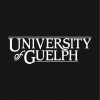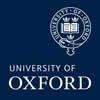University of Guelph
University of Manitoba
University of Oxford
Ryerson University
Staffordshire University

Top
What prompted you to accredit your programme(s) through SEDA-PDF?
We felt external accreditation would give the EnLITE programme more credibility. There is currently no Canadian equivalent accrediting body.
How is SEDA-PDF being used to support individuals (participants and/or programme leaders) and/or institutional agendas?
Participants: The SEDA certification is helping participants increase their level of educational knowledge and expertise in designing pedagogical best practices for the learning experience in the classroom and through course requirements, outcomes and assignments.
Programme Leaders: Programme leaders benefit in many of the ways participants do however in addition, they remain at the forefront of the educational literature and aid in the translation of SoTL into practice at Guelph; often through direct practice in the classroom.
Institution: The institution has named our program and affiliation with SEDA in our Strategic Mandate Agreement (SMA) with the government. This agreement shows how we are equipping our faculty with ongoing professional development as well as factors of differentiation (meaning that our university is one of the few in Canada that benefit from such an affiliation and sets us apart from other institutions).
From your perspective, what are the benefits of SEDA-PDF accreditation to individuals (participants and/or programme leaders) and/or institutional agendas?
Participants: the benefits to participating in an accredited programme include knowing that the curriculum has been vetted and approved by experts in teaching and learning external to the University of Guelph, being able to include successful completion of such a programme in Tenure and Promotion review, and receiving a certificate.
Programme Leaders: In part because of accreditation, my (Andrea’s) distribution of effort includes 10% for EnLITE leadership. While this may have been the case had EnLITE not been accredited, the accreditation provides more “weight” to the programme and therefore to my responsibilities.
Institution: The University of Guelph benefits as accreditation recognizes our institution as an international leader in teaching and learning excellence.
What was your experience of the mentoring and/or accreditation process?
Excellent.
Mentoring: We very much appreciated John Paul Foxe’s guidance in the preparation of our accreditation documents. This began with an introductory Skype meeting, during which John Paul provided a helpful overview of the accreditation process, including both he and Vicky’s respective roles. During this Skype meeting, John Paul, Janet and myself developed a timeline for completion, which helped Janet and I “stay on track” in pulling together the various documents. Thereafter, both parties met the various milestones in a manageable and timely manner.
Accrediting: The accreditation process from our perspective was fair and comprehensive. It allowed us to take a step back and review the EnLITE programme, including activities and progress since our last accreditation. Having external parties review our programme and activities provided us with a fresh perspective. As Vicky eloquently captured during our Skype meeting on Dec 14 (and I paraphrase): “sometimes committee members can drift together.” This is indeed true so having to be accountable to external parties is helpful.
The timeline of the process was feasible and reasonable. In sum, it took approximately 5 months to prepare all documents, have these reviewed by our mentor (John Paul Foxe), revise the documents, submit the entire package to our accreditor (Vicky Davies), hold our Skype meeting with Vicky, and receive and act on this Recognition/Accreditation Report. Throughout the process, we were well supported.
Andrea Buchholz, Faculty in the Department of Family Relations and Applied Nutrition, College of Social and Applied Human Sciences
Janet Wolstenholme, Educational Developer in Open Learning and Educational Support

In 2016, I attended an educational developers’ conference in Toronto and met John-Paul Foxe from Ryerson University. He spoke highly about the process of working with SEDA to accredit their graduate teaching certificate. At the same time, our centre identified gaps in our existing graduate teaching certificate and felt the program needed to be restructured. Ultimately, our decision to accredit the program through SEDA stemmed from:
How is SEDA-PDF being used to support individuals (participants and/or programme leaders) and/or institutional agendas?
Participants in the program are graduate students who are in the early stages of their teaching careers and who want to learn more about teaching in higher education. This focus of the program closely aligns to the Supporting Learning SEDA-PDF award as many of the values and outcomes for this award align to the teaching knowledge and skills required of new graduate student teachers.
From an institutional perspective, the program directly aligns with one of the University of Manitoba’s strategic priorities: to increase professional development and growth opportunities for students, staff, and faculty.
From your perspective, what are the benefits of SEDA-PDF accreditation to individuals (participants and/or programme leaders) and/or institutional agendas?
From my perspective, the benefits of the SEDA-PDF accreditation are:
What was your experience of the mentoring and/or accreditation process?
For the mentoring process, I was partnered with Rachael Carkett and John-Paul Foxe. During the design phase of the program, it was beneficial to talk with them via Skype and e-mail to make sure I was on the right track and understood the different requirements from SEDA and the values and outcomes associated with the award. Similarly, in preparing the institutional and programme mapping documents, it was helpful to have their guidance and feedback to improve upon the program and ensure the documents were ready to send to the accreditors.
For the accreditation process, I was partnered with Roisín Curran and Vicky Davies. Since they looked at the institutional and programme documents with fresh eyes, they brought forth different, constructive suggestions on how to improve the program.
In both cases, the mentors and accreditors were very professional and provided feedback in a timely manner.
Any other comments
I thoroughly enjoyed the process of working with SEDA as it honed my skills in curriculum development. It gave me a great deal of insight in working with an accreditation body and the requirements needed to design a program from the ground up.
Jennifer Rausch, Educational Developer, University of Manitoba

SEDA-PDF Awards and Programmes: Teaching, Learning and Assessing, and Supporting Learning
What prompted you to accredit your programmes through SEDA-PDF?
We were looking for accreditation that had a clear focus on the development of the individual teacher. For us, the SEDA Professional Development Framework offered a participant-centered framework that mapped well on to our ethos and approach. It was also important to us that our programmes were mapped to the UK Professional Standards Framework for Teaching and Supporting Learning in Higher Education, and the two SEDA-PDF awards are mapped to descriptor 1 and 2, as well as to the SEDA Professional Development Framework.
How is SEDA-PDF being used to support individuals (participants and/or programme leaders) and/or institutional agendas?
SEDA-PDF underpins our two taught programmes at Oxford. Our taught programmes have two main goals: one, to support the development and enhancement of teaching and learning at Oxford; and two, to offer career development to early career academics who are currently in Oxford.
From your perspective, what are the benefits of SEDA-PDF accreditation to individuals (participants and/or programme leaders) and/or institutional agendas?
SEDA-PDF represents very clearly the process of reflection and development, and this is particularly important to us. We want to support our teachers to continue to think about their teaching beyond the taught programme and/or beyond their time at this institution.
What was your experience of the mentoring and/or accreditation process?
Very positive indeed. The accreditation team offered timely support and mentoring. They spent a significant amount of time with us and entered into a constructive conversation about the strengths and weaknesses of our programmes. They really engaged in understanding the institutional setting and appreciating the opportunities and challenges afforded to us. We have taken on board their suggestions for improvement and have also been delighted to hear about the strengths of our current programmes!
Julia Horn, Head of Educational Development at Oxford Learning Institute

SEDA-PDFAwards and Programmes: Graduate Professional Developing in Teaching Program, Levels 1 and 2, and University Teaching Development Program

What prompted you to accredit your programmes through SEDA-PDF?
The Learning and Teaching Office (LTO) at Ryerson University had been offering teaching development programming to the Ryerson community for over 20 years. The decision to accredit our graduate student programs came from a desire to bring additional credibility, by way of accreditation, to these programs, not long after they were launched. Ryerson has an ever growing international graduate community, and the SEDA-PDF accreditation allowed us to offer an internationally recognized certification.
The success of these programs, partly because of the accreditation, led us to seek accreditation for one of our most popular faculty programs.

How is SEDA-PDF being used to support individuals (participants and/or programme leaders) and/or institutional agendas?
The SEDA values align very nicely with the current Ryerson 2014-2019 Academic Plan, “Our Time to Lead”, and they have helped guide the way in which our accredited programs are offered.
From your perspective, what are the benefits of SEDA-PDF accreditation to individuals (participants and/or programme leaders) and/or institutional agendas?
The LTO acknowledges the importance of the external accreditation of our programming with the office’s current strategic plan, and will continue to develop programming within the accreditation framework to ensure a consistent standard of delivery for our facilitators and learning experience for our participants.
Our SEDA accredited programs benefit the faculty and graduate students who participate in our programming in many ways. Perhaps the most obvious benefit is to their CV. Their participation demonstrates a commitment to educational development and teaching excellence, and helps them in terms of job applications. Many of our programs’ graduates have gone on to receive tenure and full-time teaching positions on our campus and across the country.
What was your experience of the mentoring and/or accreditation process?
The LTO was very well supported throughout the mentoring and accreditation process. We were provided with ongoing communication with our mentor, and were more than satisfied with the quality of the formative feedback provided, which helped us to not only accredit our programs, but also to improve their quality. We appreciated that despite our location in Canada, we were provided with an in-person visit from the accreditor. This personal touch allowed our office to truly feel a part of the SEDA family.
Any other comments
The accreditation process was very straight forward. We were provided with great recommendations that helped shape the direction of our programming.
John Paul Foxe, Director of the Academic Integrity Office

What prompted you to accredit your programme(s) through SEDA-PDF?
SEDA are committed to developing innovative and collaborative practice. As ‘the Connected University’ this relates to our determination at Staffordshire to enhance learning through technology and social learning.
How is SEDA-PDF being used to support individuals (participants and/or programme leaders) and/or institutional agendas?
The SEDA Professional Development Framework is used to inform the ethos of our award, ensuring that learning outcomes are fully aligned. This helps academics new to their role at Staffordshire or other HE organisations on our award to develop their professional practice and contribute to the broader development higher education.
From your perspective, what are the benefits of SEDA-PDF accreditation to individuals (participants and/or programme leaders) and/or institutional agendas?
The SEDA agenda of empowering individuals through professional recognition, as well as its emphasis on collective, reflective and innovative development, clearly help our new staff meet the Staffordshire Connected University values:
Be ambitious and daring
Be brilliant and friendly
Be curious and daring
Be proud to be Staffs
At Staffordshire, we place a high value on critically informed reflective professional development of our staff in order to enrich the learning experience of our students.
What was your experience of the mentoring and/or accreditation process?
The mentoring and accreditation process was streamlined yet supportive. As an integral part of the process, the university was allocated a mentor. She was not just supportive, but pro-active throughout the process, offering constructive guidance. This enabled the accreditation process to run smoothly and efficiently thanks to the supportive framework offered by SEDA.
Any other comments
Thank you SEDA for your ongoing support. At Staffordshire University we look forward to continuing to work together to help develop the dynamic and innovative educators required in a rapidly changing and connected world.
Dr Duncan Hindmarch, Senior Lecturer in Education, Staffordshire University